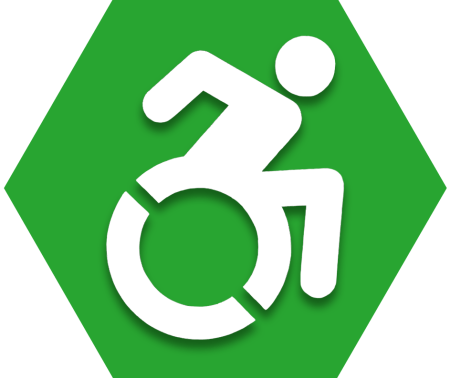
Carolyn Herbst, committee chair
Welcome to the George Fesko UFT Committee for Members who are Capably Disabled.
The UFT provides several avenues for members to deal with disabilities issues in the workplace. This assistance operates in the school, the borough offices, at UFT Headquarters, and at the Department of Education (DOE) Medical Division. The Committee itself is an outreach effort to support members needing reasonable accommodations in the workplace, as well as providing all UFT members with useful information on disabilities issues. A capably disabled person is qualified to perform an assignment but might require a reasonable accommodation to do it well.
Members needing assistance should work with their Chapter Leaders and/or UFT District Representatives (DR's) in the UFT borough offices. Please contact them. For further assistance they can turn to designated UFT Special Representatives in the borough offices. If there is a problem involving the results of a medical exam at the Department of Education, UFT Special Representative Tom Bennett is available to answer any questions regarding examinations. Contact him at: tbennett@uft [dot] org [at] uftwf [dot] org (tbennett[at]uft[dot]org) or 212-598-7711 or leave a voicemail message. If you are a Paraprofessional, also please contact Tom Bennett. UFT Retirees who need help with disability issues may contact the Office of Christopher Chin, LMSW, Director, Retiree Social Services, Retired Teachers Chapter (RTC), 17th Floor, 52 Broadway, New York, NY 10004, 212-598-6880, cchin [at] uftwf [dot] org (cchin[at]uftwf[dot]org)
The UFT established the Capably Disabled Committee in March 1990 to support disabled members seeking accommodations to continue their work as educators. However, you do not have to be a person with a disability to join the committee. We also include persons who, based upon medical prognoses, expect to be disabled in the future and others who simply support their colleagues and families in the pursuit of their legal, contractual and human rights.
The Committee holds regularly scheduled meetings offering information and camaraderie. The Committee gives members a way to network and share ideas and information. Join Us!
How Do I Join?
Enroll online using the link below:
Join the Committee
Please note: you must log in to enroll.
If you would like to be notified about our meetings and activities, please write to:
UFT Committee for Members Who Are Capably Disabled
52 Broadway
New York, NY 10004
Or you could call Carolyn Herbst, the committee chair, at 212-510-6389.
Be sure to include your name, home address, school site, district, position and telephone numbers for home and work.
Definition of Disability
The Federal Americans with Disabilities Act (ADA) and the New York State & New York City Human Rights Laws entitle people with disabilities to reasonable accommodations in order to help them perform the essential functions.
An individual with a disability under the ADA is a person who satisfies one or more of the following conditions:
- Currently has a physical or mental impairment that substantially limits one or more major life activities.
- Has a record of such impairment.
- Is regarded as having such impairment.
- Major life activities are activities that an average person can perform with little or no difficulty such as walking, breathing, seeing, hearing, speaking, learning and working.
The New York State Human Rights Law defines the term disability as
- a physical, mental or medical impairment resulting from anatomical, physiological, genetic or neurological conditions which prevents the exercise of a normal bodily function or is demonstrable by medically accepted clinical or laboratory diagnostic techniques or
- a record of such an impairment or
- a condition regarded by others as such an impairment.
According to The New York City Human Rights Law the term "disability" means any physical, medical, mental or psychological impairment, or a history or record of such impairment.
The term "physical, medical, mental, or psychological impairment" means: (1) An impairment of any system of the body; including, but not limited to: neurological system; the musculoskeletal system; the special sense organs and respiratory organs, including, but not limited to, speech organs; the cardiovascular system; the reproductive system; the digestive and genito-urinary systems; the hemic and lymphatic systems; the immunological systems; the skin; and the endocrine system; or (2) A mental or psychological impairment. (c) In the case of alcoholism, drug addiction or other substance abuse, the term "disability" shall only apply to a person who (1) is recovering or has recovered and (2) currently is free of such abuse and shall not include an individual who is currently engaging in the illegal use of drugs, when the covered entity acts on the basis of such use.